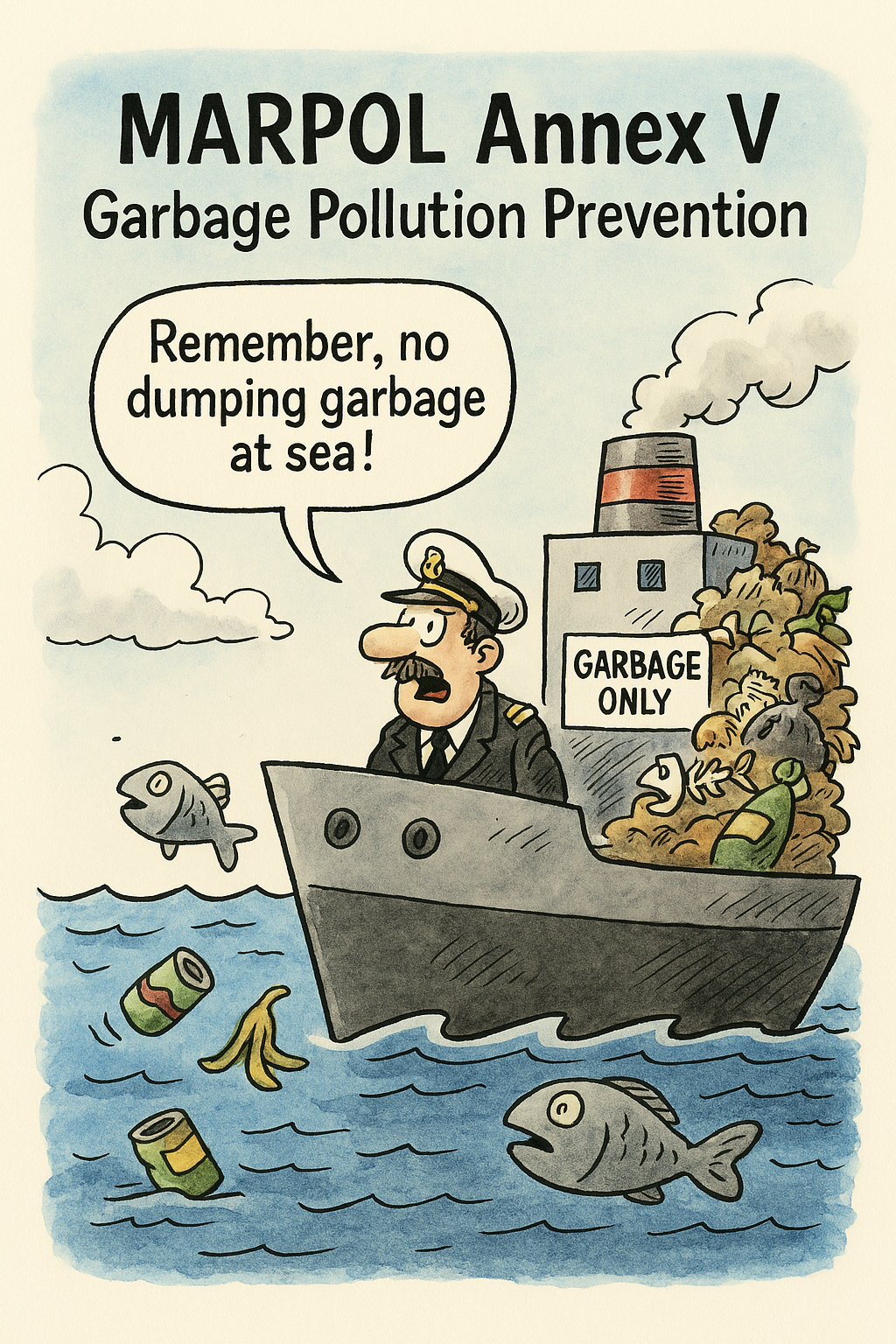Your cart is currently empty!

📘 MARPOL Annex V – Prevention of Pollution by Garbage from Ships
Objective:
MARPOL Annex V aims to eliminate the discharge of garbage from ships into the sea, protecting the marine environment from plastics, food waste, and other harmful debris. It is one of the most visible forms of pollution at sea and poses major risks to wildlife and ecosystems.
Scope of Application:
- Applies to all ships, regardless of size or type.
- Covers handling, storage, and discharge of various waste types.
- Prohibits or restricts discharge based on waste category and location (e.g., distance from land, special areas).
Types of Garbage Regulated (as per MARPOL definitions):
- Plastics (e.g., packaging, fishing gear)
- Food waste
- Domestic waste (e.g., paper, rags, glass)
- Cargo residues
- Cleaning agents and additives
- Animal carcasses
- Operational waste
Key Discharge Regulations:
🛑 Plastics
- Discharge is prohibited everywhere – no exceptions.
🍽️ Food Waste
- May be discharged:
- ≥12 nautical miles from land (without grinding)
- ≥3 nautical miles if ground to ≤25 mm
⚠️ Other Wastes
- Discharge conditions vary depending on:
- Waste type
- Distance from nearest land
- Whether the ship is in a Special Area
🌊 Special Areas
Stricter discharge bans apply in:
- Baltic Sea
- Mediterranean Sea
- Red Sea
- Black Sea
- Gulfs Area
- North Sea
- Antarctic Area
- Wider Caribbean Region (including the Gulf of Mexico)
In many of these areas, most garbage discharge is fully prohibited.
Operational Requirements:
📘 Garbage Management Plan
Required on all ships ≥100 GT or certified to carry ≥15 persons.
🗑️ Garbage Record Book
- Required for ships ≥400 GT and for all passenger ships
- Must record:
- Discharges to sea
- Discharges to port reception
- Accidental losses
♻️ Placards
- Must be posted on board to inform crew and passengers about discharge regulations.
Port Reception Facilities:
- Ports must provide facilities for safe disposal of ship-generated waste.
- Ships must retain garbage on board if discharge is not permitted.
✅ Summary:
MARPOL Annex V establishes a detailed, global framework to prevent garbage pollution at sea, focusing on:
- Complete ban on plastic discharge
- Clear discharge rules by type and location
- Mandatory recordkeeping and garbage management
- Responsibility of ports and flag states
It promotes a “zero garbage discharge” culture on ships and helps protect marine wildlife, food chains, and coastal environments.
